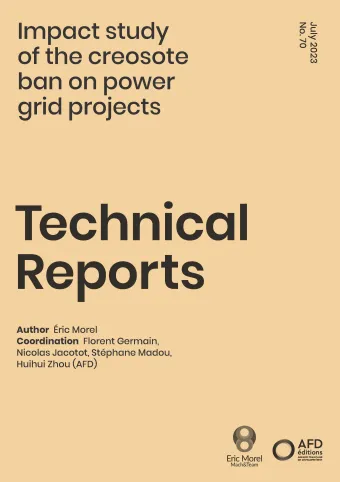Share the page
Impact study of the creosote ban on power grid projects
Published on

Throughout the world, a vast majority of electric utility poles are made of wood. To increase the service life of these poles and improve their durability against various types of deterioration (insects, bad weather, and humidity), they are impregnated with fungicides and insecticides that are often dangerous for human health and the environment.
The most common of these is creosote, a product derived from the manufacture of steel which is made from coal.
Its impact on human health (it is carcinogenic, mutagenic and reprotoxic) and on the environment (it is very toxic for aquatic organisms) prompted the European Commission to ban it.
This decision is part of a series of regulations aimed at stopping the use of chemicals that are too dangerous for humans and the environment.
Therefore, the issue of alternative solutions for manufacturing power poles arises for power grid managers as well as for development banks which, like AFD, fund the construction of power grids.
Useful Information
-
Authors
-
Eric MOREL
-
Coordinators
-
Coordination Florent Germain, Nicolas Jacotot, Stéphane Madou, Huihui Zhou (AFD)
-
Edition
-
70
-
Number of pages
-
105
-
ISSN
-
2492-2838
-
Collection
-
Technical Reports
-
Other languages
